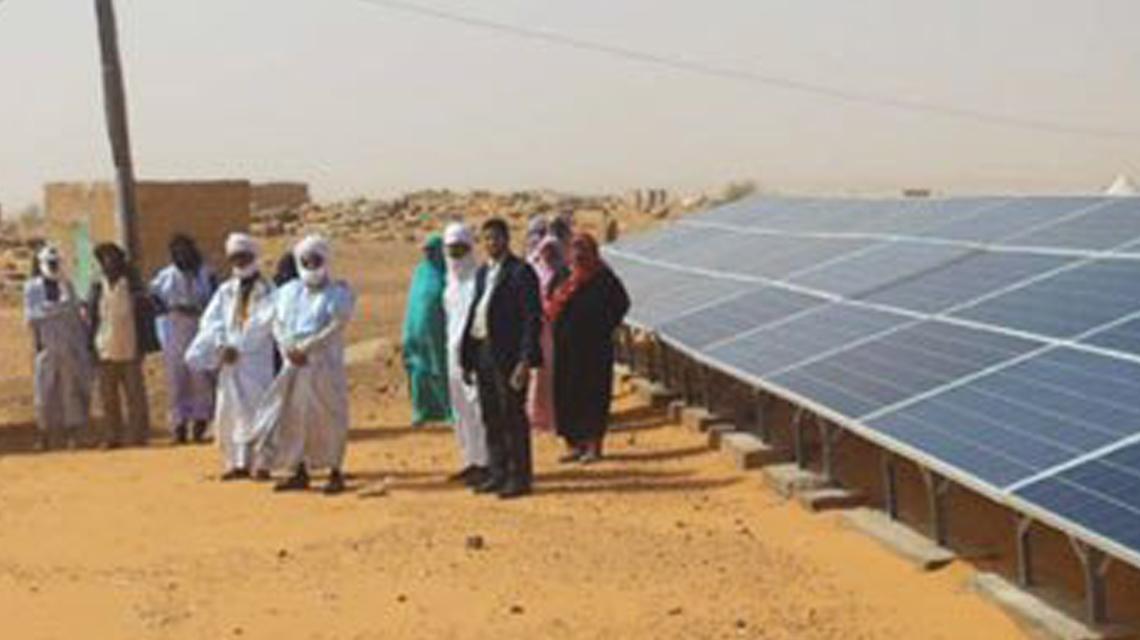A trailblazer in Mauritania’s solar energy industry
When Ould Lebatt founded Compagnie Générale des Energies Renouvelables (COGER) in 2001, he was one of the first people in Mauritania to recognize that the country’s need for affordable, reliable energy could be met with solar power. Mauritania is ideally located for renewable energy generation because it is sparsely populated and almost entirely desert—just 0.5% of its land is arable. With just 22% of Mauritanians having energy access at the time, Lebatt was among the first in the country to realize solar energy’s potential. Since then, the company has supplied an estimated 2.5 MW of solar energy to urban dwellers and trained more than 80 solar technicians—helping to expand the energy access and the country’s clean energy economy, and contributing to more than 40% of Mauritanians having access to electricity today.
While urban access to electricity has been expanding with COGER’s help, today just 2.3% of Mauritania’s rural population is connected to the grid. The major access gap has turned Lebatt’s attention to increasing energy access in rural areas. With the support of a United States African Development Foundation (USADF) grant, in 2019, Lebatt undertook a large-scale off-grid solar project in Acharim, a village about 700 km from the capital city of Nouakchott, home to about 750 people. In addition to power, COGER also supplied each home and business with solar lamps, water pumps, and power outlets. The project has been a success, significantly improving the standard of living in the village and increasing livelihoods and incomes. Farmers have improved their irrigation methods and are able to preserve their produce, enabling them to reach new and distant markets. Shop owners have installed refrigerators, increasing their sales revenue, and children can now study after sunset.
While continuing to provide essential services, COGER has become even more critical during the pandemic. With the help of an emergency CARES grant from USADF, the company recently extended solar energy access to a rural hospital near Acharim. Access to reliable solar energy helps the hospital to improve health care and save lives during the pandemic and beyond. Lebatt is eager to replicate this project’s success by powering more hospitals across Mauritania. He sees it as an opportunity for business growth and income generation that will also contribute to Mauritania’s development and health goals.
Recognizing the myriad socioeconomic benefits, the Mauritanian government has made increasing energy access a key development priority. It is working to align its policies with the U.N. Sustainable Development Goals, which link energy access to poverty reduction, violence reduction, and greater health and educational attainment. Lebatt and his work with COGER show the crucial role that off-grid renewable energy and local businesses are playing in achieving these goals. However, small businesses can often do this kind of transformative work—and scale—only with technical support and access to working capital such as that provided through USADF. This type of grassroots business support could provide a model for the Mauritanian government to replicate in its support of off-grid energy companies, which will remain essential for Mauritania during and well after the pandemic.


